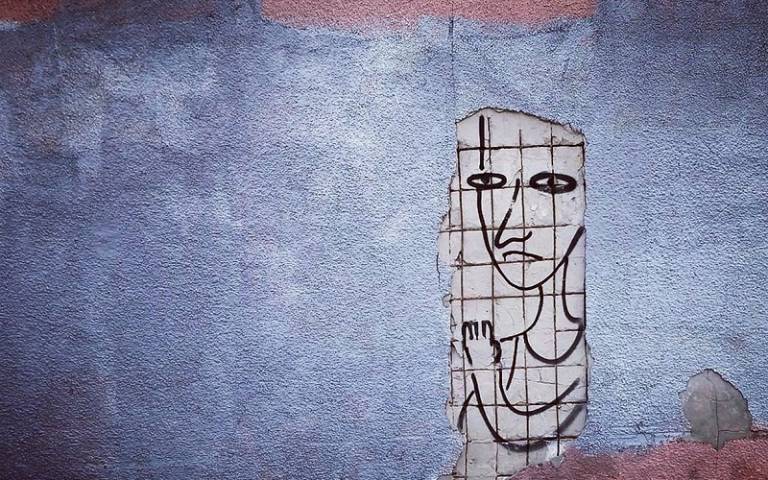A UN body is about to examine the UK’s treatment of prisoners – and it’s not looking good
10 April 2019
Julia Kreienkamp (GGI Research Assistant) and Tom Pegram (GGI Deputy Director) explain why the dire state of our prison system is going to be in the spotlight at the UK's upcoming review by the UN Committee against Torture.

This article was originally published by openDemocracy UK on 10 April 2019.
Early next month, the UK will be examined by the United Nations Committee against Torture, an expert body that monitors implementation of a key human rights treaty: the Convention against Torture and Other Cruel, Inhuman or Degrading Treatment or Punishment. A major focus of the review is likely to be the dire situation in prisons across the UK.
This will not be the first time that the Committee against Torture considers the state of the UK prison system. In its most recent review of the UK in 2013, the Committee expressed concerns over ‘the problem of overcrowding, and its impact on suicide rate, cases of self-injuries, prisoner violence and access to recreational activities’, ‘deficiencies in the access to appropriate mental health care’ as well as the use of ‘techniques of restraint that aim to inflict deliberate pain on children in Young Offender Institutions’. Since then, the situation in UK prisons has only gotten worse. In its latest annual report, the prison watchdog for England and Wales documents ‘some of the most disturbing prison conditions’ ever witnessed by inspectors. Years of funding cuts have led to chronic overcrowding and understaffing in many prisons and safety levels have declined dramatically, with prisoner suicide and self-harm showing an alarming rise.
The very idea that prisoners have rights, let alone that the UN should poke its nose into such matters, is bound to be met with significant hostility. Yet, this issue cuts to the very core of human rights protection. There are a number of basic human rights that cannot be taken away from anyone under any circumstances – even, and perhaps especially, if one is in the custody of the state. Among the most essential is the right not to be subjected to torture and other cruel, inhuman, or degrading treatment or punishment. While there is some disagreement over what exactly these ‘other’ forms of ill-treatment are, they are of clear relevance to UK prisons. For example, the continued use of pain compliance techniques and solitary confinement for children in custody can be considered in breach of the Convention against Torture. But cruel, inhuman, or degrading treatment can also involve less headline-grabbing cases of abuse or neglect, such as social isolation or a failure to provide access to adequate medical assistance, fresh air and meaningful activity.
Safe and humane prison conditions are key to ensuring a fair and effective criminal justice system. How we treat prisoners, including the most serious offenders, is ultimately a reflection of how much we value human rights for all. In the UK, too many prisons are failing to meet the most basic standards, leading to conditions that should ‘have no place in an advanced nation in the 21st century’. The upcoming review by the Committee against Torture can help shed light on these systemic failings. However, substantial change is unlikely to come about without parliamentary pressure and a well-informed public debate about the damaging impact of austerity on UK prisons and the people behind bars.
Continue reading on openDemocracy UK.
 Close
Close


